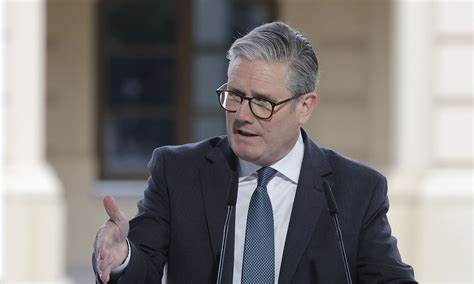INTERNATIONAL

UK HALTS INTERNATIONAL HIRING FOR SOCIAL CARE ROLES
The UK government has declared an end to overseas recruitment for social care visas, signaling a major change in immigration policy. This move is intended to reduce reliance on foreign workers and enhance domestic workforce development.
Detailed in an 82-page White Paper titled Restoring Control over the Immigration System, the policy is a key component of Prime Minister Keir Starmer’s broader plan to lower net migration and reinforce border security.
“In line with our wider reforms to skills thresholds, we will close social care visas to new applications from abroad,” the Home Office said in a statement published Monday, May 12.
This decision follows a significant increase in net migration, which has quadrupled from 2019 to 2023, leading officials to describe the change as a necessary restructuring of the immigration system.This decision follows a significant increase in net migration, which has quadrupled from 2019 to 2023, leading officials to describe the change as a necessary restructuring of the immigration system.
While new overseas applications for social care roles will cease immediately, the government has introduced a transition period until 2028, when current visa holders can apply for extensions or switch visa categories within the UK.
However, officials emphasised this will be "kept under review." The reforms target long-standing criticisms that employers have relied excessively on international labour at the expense of training the domestic workforce.
“New requirements on employers to boost domestic training will end the reliance on international recruitment,” the Home Office said, adding that the system must serve those who “contribute most to economic growth.”
A key change involves raising the skilled worker level to RQF 6 (graduate level) and removing the immigration salary list, which had previously permitted employers to offer lower wages for shortage occupations. Going forward, only roles with persistent shortages and approved workforce strategies will qualify for overseas recruitment, under stricter conditions.
The government also intends to strengthen compliance standards for institutions sponsoring international students, with recruitment capped for those that fail to meet the required criteria. Additionally, post-study work rights will be shortened to 18 months, down from the previous two years.
At the same time, the UK aims to attract “the brightest and best” through expanded high-talent routes and faster pathways for strategic industries.
In efforts to prevent abuse, the government said it would tighten visa scrutiny, especially for asylum seekers whose home conditions have not “materially changed.”
These changes follow comments earlier this year by opposition leader Kemi Badenoch, who argued that citizenship should not be “an automatic right,” calling for stricter settlement requirements for migrants.
"This represents a significant development in our ongoing coverage of current events."— Editorial Board









